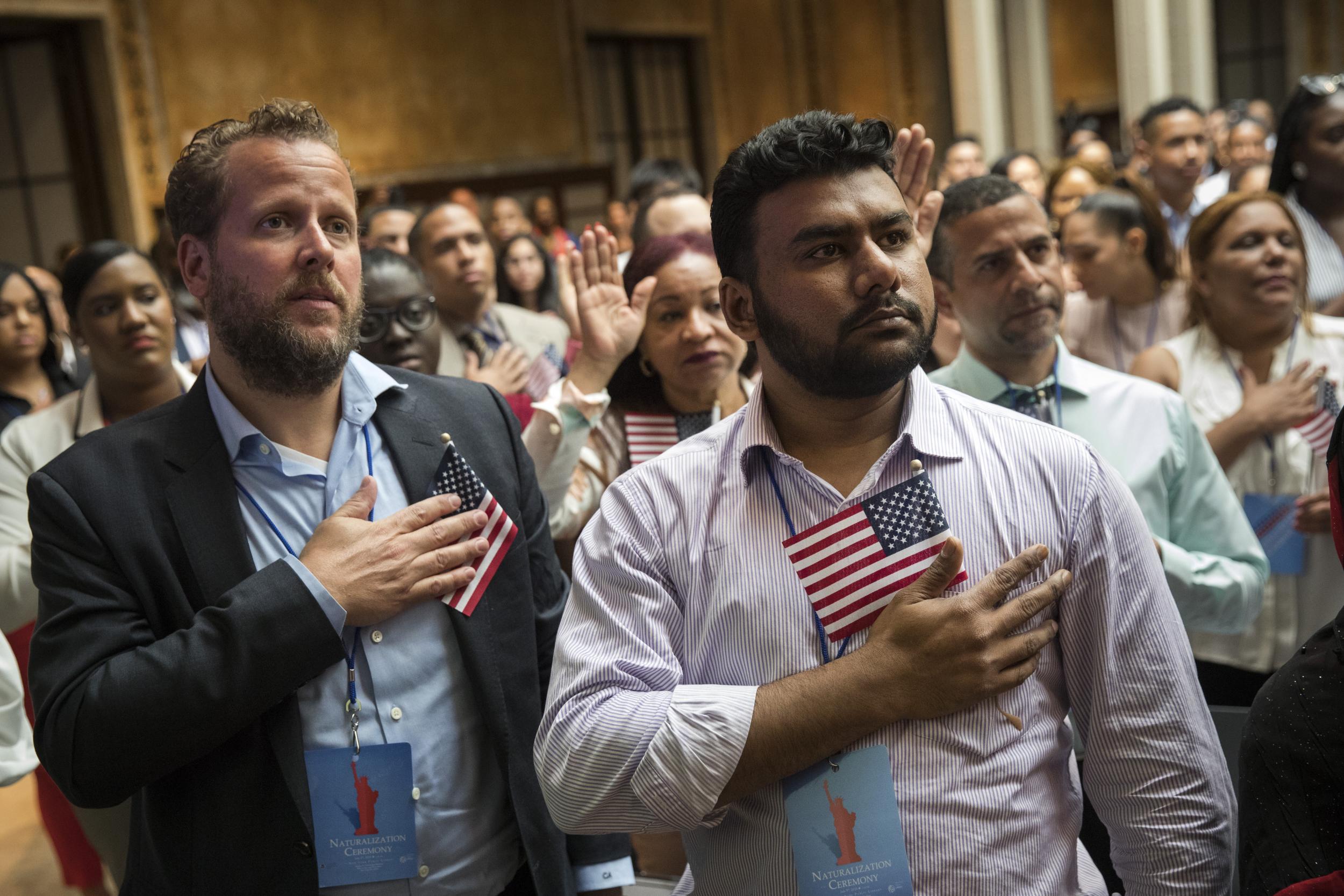Trump 'planning to make it harder for legal immigrants to gain citizenship'
'This could be expanded to all sorts of crazy things,' immigration attorney tells The Independent

Your support helps us to tell the story
From reproductive rights to climate change to Big Tech, The Independent is on the ground when the story is developing. Whether it's investigating the financials of Elon Musk's pro-Trump PAC or producing our latest documentary, 'The A Word', which shines a light on the American women fighting for reproductive rights, we know how important it is to parse out the facts from the messaging.
At such a critical moment in US history, we need reporters on the ground. Your donation allows us to keep sending journalists to speak to both sides of the story.
The Independent is trusted by Americans across the entire political spectrum. And unlike many other quality news outlets, we choose not to lock Americans out of our reporting and analysis with paywalls. We believe quality journalism should be available to everyone, paid for by those who can afford it.
Your support makes all the difference.The Trump administration is reportedly planning to penalise immigrants to the US who have applied for public benefits, in a major departure from current US practice that could affect millions of people.
The White House intends to issue a proposal in the coming weeks that would make it harder for immigrants to get a green card or become a citizen if they have used benefits like Obamacare, children's health insurance, or food stamps, according to NBC News.
The proposal is reportedly part of White House policy adviser Stephen Miller’s plan to reduce the number of immigrants eligible to stay permanently in the US. Experts estimated it could affect up to 20m immigrants.
The Department of Homeland Security said in a statement that the administration was “committed to enforcing existing immigration law”. These laws, a department spokesperson added, were “clearly intended to protect the American taxpayer by ensuring that foreign nationals seeking to enter or remain in the US are self-sufficient”.
But immigration attorneys told The Independent that the proposal would be a huge departure from how immigration law is actually enforced.
Under current US statues, immigrants can have their green card or visa applications rejected if they are determined to be a “public charge" – someone who is likely to become dependent on the government for subsistence.
But two immigration attorneys – both of whom have worked in the field for more than 30 years – told The Independent they had never seen an application rejected over the use of government programmes.
Bruce Coane, an immigration attorney who practices in Texas and Florida, said the term “public charge” usually refers to someone who receives direct government aid, like cash assistance or funding for long-term care. The new policy would expand that category to include people who received an indirect government benefit, like subsidized insurance through Obamacare.
From there, Mr Coane said, the category could be expented to include any immigrant who has received any kind of government assistance – from a free bus pass to federal emergency relief after a hurricane.
“This could really be expanded to all sorts of crazy things,” he said, adding: “This administration has become very creative in coming up with ways to deny and exclude immigrants.”
Atlanta immigration attorney Charles Kuck said that if the policy was issued, it would likely be challenged in court. Much like the president's failed attempts to repeal DACA, he said, it was doubtful the policy would stand up to legal scrutiny.
“I would love to be the lawyer that has that first case,” Mr Kuck said. “The reality is i don’t think they have a case to deny citizenship to people.”
But what the policy could do, he added, was prevent immigrants from applying for benefits in the first place. He said he had already heard from immigrant parents who were wary of applying for food stamps for their children, for fear it would affect their citizenship application.
“I think what we see here is, again, [a policy] designed to scare people,” he said. “And it’s working to a certain extent.”
Join our commenting forum
Join thought-provoking conversations, follow other Independent readers and see their replies
Comments